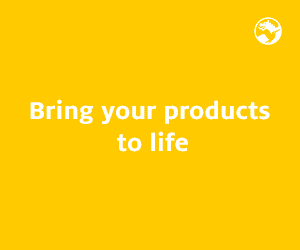The latest news, trends, analysis, interviews and podcasts from the global food and beverage industry
You might expect a product that claims to have red wine health benefits to be the result of decades of work performed in the California wine country. However, this particular beverage was conceived in a natural food science laboratory in a technology park near Chicago, more than 1,000 miles from the grape vines and fertile soils of Napa Valley.
Two years ago, Ravi Randhava read an article in the scientific journal Nature that made his heart skip. A study in mice revealed that a compound called resveratrol, found in red wine, could actually prolong life.
To Dr Randhava and many others in the scientific community, the findings bordered on spectacular. Yet, at that time, the primary way to benefit from resveratrol was to drink red wine, and 38% of Americans abstain from drinking alcohol, including Dr Randhava himself!
Dr Randhava and his brother, Sujit, are the owners and lead scientists of Unitel Technologies, a family-owned chemical engineering company that specialises in extracting compounds from large streams of material. They had already enjoyed success with proprietary methods of extracting compounds (very gently and non-toxically), such as lycopene, from tomato skins. They believed that similar techniques could be applied to red wine grapes.
“The findings of this study were almost unbelievable – to uncover this natural compound that extends life," says Alex Randhava, partner at Unitel Technologies, and Ravi's son. "We saw this incredible opportunity to extract the antioxidant compound from red wine grapes and offer it in a non-alcoholic form."
From tomatoes to wine
This family of scientists leapt into the world of wine – learning about winemaking, process and the rich fruit materials that are wasted after pressing the grapes.
Because red wine grapes can run $2,000 a tonne, it would be too costly to purchase grapes from the vine. Consumers would be interested in this fountain of youth compound but only if it was affordable. So, they focused on the valuable leftover skins, stems and seeds, where red wine grape’s healthiest antioxidants reside. Could they extract the identical antioxidant compound from the pressed grapes that would otherwise be discarded?
They went to work with Dr Leroy Creasey at Cornell University’s School of Viticulture. Their goal was to identically represent the spectrum of compounds that are found in red wine. Not to refine or isolate that compound, but to duplicate it exactly. And after grants from the USDA, patents and extensive testing, they were able to do just that. But how to offer this finding to the public?
They enlisted the expertise of Dan Waters, a veteran marketer and manager who had years of experience leading brand efforts for highly recognised consumer companies such as Barilla America Pasta, The Clorox Company, Colgate-Palmolive and The Gap.
“We had leading scientists who recognised the valuable nutritional discovery that was presenting itself,” says Dan Waters, Embodi president. “The challenge was in how to deliver this to the public in a product that was compelling.”
Not wanting to get lost in the shuffle of nutriceuticals or supplements, Waters went to task leading the development of a nutritional beverage.
Understanding the benefits
The timing was ripe for a functional drink for a few reasons. First, the organic industry was and continues to grow rapidly. Second, the functional food and beverage markets were expanding and becoming more mainstream.
Goliath beverage companies such as Tropicana and Minute Maid were introducing juice drinks with health benefits. So, consumers weren’t intimidated by terminology and had a genuine and increasing interest in nutritional benefits found in foods and beverages.
Waters believed that developing a delicious, non-alcoholic beverage that offered the benefits of red wine made perfect sense. He evaluated the market and saw that most nutritional beverages being introduced required education on the benefits.
“People don’t inherently understand the benefits of Açai or Goji berry,” explains Waters. “The good news for us is that 85% of adult Americans understand the health benefits of red wine.”
And because there's a large percentage of the population that doesn’t drink wine, Waters recognised the market opportunity. In July 2008, Embodi became the first beverage to offer the health benefits of red wine without the alcohol.
The benefits of red wine have been scientifically supported for decades, and new studies reveal exciting news regularly. In October 2008, a study showed evidence that drinking red wine may ward off lung cancer.
Still, the reality is that most Americans aren’t drinking red wine – 11% of the American population consumes more than 80% of the wine purchased in this country.
Embodi is the first non-alcoholic beverage to offer people the full spectrum of antioxidants found in red wine. They extract the identical compound from red wine grape skins, stems and seeds and deliver it to you in a crisp, refreshing functional beverage.







.jpg)